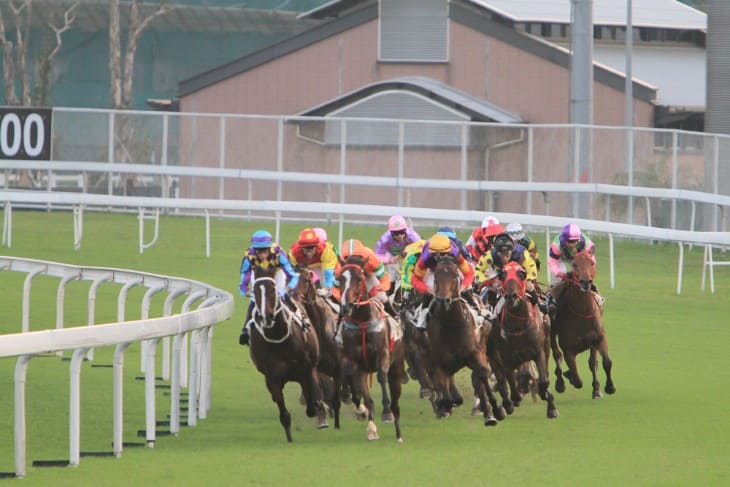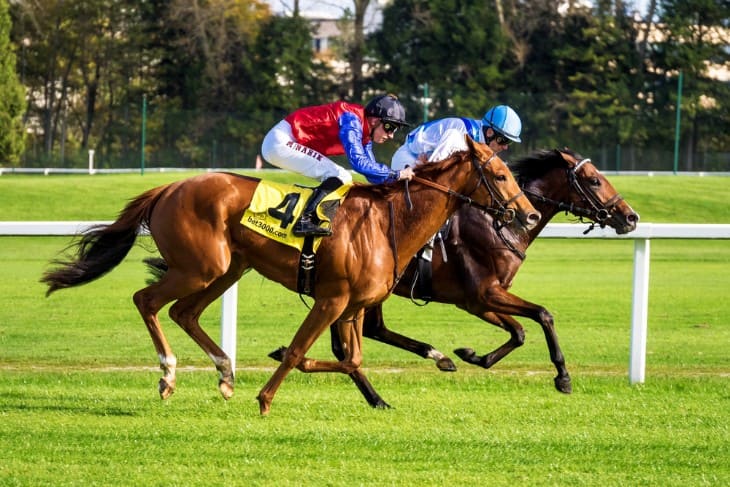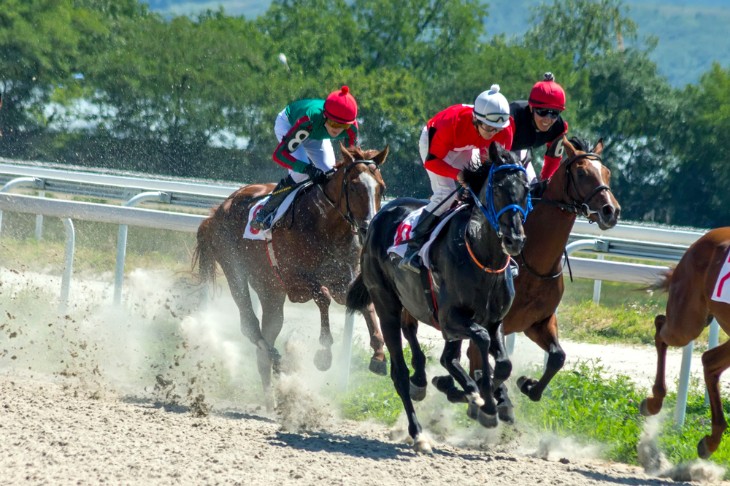- Impact on International Horse Trading
- New Regulations and Border Controls
- The Financial Landscape
- Implications for Jockeys and Stable Staff
- Betting and Gambling Regulations
- Horse Welfare Concerns
- The Future of International Competitions
- Changes in Horse Racing Economics
- Impact on Breeding and Bloodlines
- Conclusion
Impact on International Horse Trading
The departure of the United Kingdom from the European Union brought about a significant transformation in the realm of international horse trading. Prior to Brexit, the free movement of horses between the UK and EU member states was facilitated by the harmonization of regulations. Horses could traverse borders with relative ease, participating in races, competitions, and breeding programs, bolstering the vitality of the UK's horse racing industry. However, as the UK ceased to be part of the EU single market and customs union, new rules and protocols became necessary. These changes have led to several noteworthy impacts on the international horse trading landscape.
Firstly, the introduction of customs checks and regulatory divergence has added complexity to the process of importing and exporting horses. Veterinarian examinations and paperwork requirements have become more stringent, contributing to a lengthier and more intricate procedure for transferring horses across borders. Such intricacies have led to delays, increased administrative costs, and concerns about the welfare of the animals during transit. Secondly, the imposition of tariffs on equine imports and exports has impacted the financial considerations involved in international horse trading. Breeders and owners are now confronted with additional costs that were previously absent, altering the economic dynamics of acquiring and selling horses from and to EU countries. These changes have forced stakeholders in the UK's horse racing industry to adapt their strategies and operations to navigate this new terrain effectively.
New Regulations and Border Controls
Brexit ushered in a new era of regulations and border controls governing the movement of horses between the UK and the European Union. These regulations are designed to ensure animal health and welfare, maintain biosecurity, and address disease risks. One significant development is the introduction of the UK's new Border Control Post (BCP) system, which now requires horses arriving from the EU to enter through approved BCPs. These posts are equipped with facilities for inspections, health checks, and customs procedures. While aimed at safeguarding the health of horses and preventing disease outbreaks, this change has added layers of bureaucracy and logistical challenges for the horse racing industry.
Furthermore, the requirement for EU horses entering the UK to have undergone mandatory pre-export testing for diseases such as equine infectious anemia (EIA) and equine viral arteritis (EVA) has become a standard procedure. These health checks are designed to mitigate the risk of disease transmission, but they necessitate additional planning and expenses for horse owners and breeders. The cumulative effect of these new regulations and border controls is an industry that has had to adapt to a more complex and structured trading environment, with implications for both the ease of doing business and the overall dynamics of horse racing in the UK.

The Financial Landscape
Brexit's impact on the financial landscape of the UK's horse racing industry is multifaceted. One of the most immediate effects has been the fluctuations in currency exchange rates. The depreciation of the British Pound following the referendum has both positive and negative implications. While it can make purchasing UK-bred horses more attractive to international buyers due to lower prices, it also raises concerns about the increased cost of importing horses and feed from abroad. These currency fluctuations have introduced a level of uncertainty into the financial planning of horse racing stakeholders.
Moreover, changes in funding and sponsorship dynamics have been observed. The horse racing industry relies on various sources of income, including government funding, betting revenue, and corporate sponsorships. Brexit's impact on the UK's economic relationships with the EU and the rest of the world has the potential to influence these revenue streams. Potential shifts in international betting patterns and regulatory changes may also affect the income generated by the industry. In response to these financial uncertainties, industry participants have been compelled to explore new revenue streams and adapt their financial strategies to ensure the continued viability of horse racing in the UK.
Implications for Jockeys and Stable Staff
Brexit has not only impacted the administrative and regulatory aspects of the UK's horse racing industry but has also brought about changes for the individuals working within it. Jockeys and stable staff, who play a pivotal role in the daily operations of racing stables and tracks, have faced several implications. Firstly, there have been concerns about the availability of a skilled workforce. Historically, the industry has relied on a mix of domestic and international talent to meet its labor needs. With new immigration rules post-Brexit, there have been apprehensions regarding potential labor shortages in key roles within the industry.
Furthermore, the movement of jockeys and stable staff to and from EU countries for international races and competitions has become more complex. Visa requirements and work permits now need to be considered, adding an extra layer of bureaucracy and planning for those involved in horse racing. This has necessitated adjustments in terms of scheduling and coordination, potentially affecting the participation of UK-based jockeys and stable staff in international events. Overall, the implications for jockeys and stable staff underline the human aspect of Brexit's impact on the industry, prompting stakeholders to adapt their workforce strategies.
Betting and Gambling Regulations
The horse racing industry has long been intertwined with betting and gambling, and Brexit has brought about notable changes in this regard. One significant development is the UK's newfound ability to set its own rules and regulations related to gambling. While this presents an opportunity for the UK to tailor its gambling policies to the specific needs of the horse racing industry, it also raises questions about alignment with international standards and the potential impact on betting markets.
The possibility of divergent regulations between the UK and the EU has implications for international betting operators and the availability of betting options for horse racing enthusiasts. For instance, the recognition of betting licenses issued in the UK by EU member states and vice versa has come under scrutiny. This could potentially affect the scope of international betting pools and the accessibility of UK races to European punters. As a result, the horse racing industry has been closely monitoring developments in betting and gambling regulations, recognizing the critical role they play in the overall ecosystem of the sport.
Horse Welfare Concerns
The welfare of horses in the UK's racing industry has emerged as a prominent concern in the wake of Brexit. One significant issue pertains to the transportation of horses between the UK and the EU. The new regulations, including increased paperwork and health checks, have added complexity to the process of moving horses across borders. These complexities can lead to longer transit times and more extended periods of confinement for the animals. Ensuring the well-being of horses during these journeys has become a paramount consideration, with industry stakeholders implementing stringent measures to mitigate stress and discomfort.
Additionally, there are concerns regarding the availability of veterinary medicines and treatments post-Brexit. The horse racing industry relies on a range of pharmaceuticals to maintain the health and performance of its equine athletes. Changes in regulatory approvals and access to medicines have raised questions about the continuity of care for these animals. This has prompted industry professionals to adapt their healthcare protocols and stockpile essential medications to safeguard the welfare of the horses. In essence, the horse racing community has been prompted to address horse welfare concerns head-on, ensuring that the changes brought about by Brexit do not compromise the health and well-being of their prized animals.
The Future of International Competitions
The landscape of international horse racing competitions has undergone notable changes in the post-Brexit era. Historically, the UK has been a prominent host for prestigious events such as the Grand National and Royal Ascot, attracting top-class horses and jockeys from around the world. However, Brexit has introduced uncertainties regarding the participation of European horses in these competitions. The new regulations and border controls have raised logistical challenges for European trainers and owners looking to bring their horses to the UK for these events.
Conversely, the UK's own participation in international competitions hosted in EU countries has also faced potential disruptions. Visa requirements and health checks for horses traveling to the EU have added complexity to the planning and execution of such trips. These challenges have prompted a reassessment of the feasibility and logistics of UK-based horses competing in international races. The future of international competitions in the UK now hinges on adaptability and cooperation between racing authorities, trainers, and owners to ensure the continued success and prestige of these events.
Changes in Horse Racing Economics
The economics of horse racing in the UK have been significantly influenced by Brexit. One of the notable changes pertains to prize money. Historically, UK racing has attracted top-tier international talent due to its substantial prize funds. However, Brexit-induced uncertainties in the economic landscape have led to concerns about the sustainability of these prize pools. With potential shifts in sponsorship deals and betting revenue, there is a pressing need for racing authorities to secure stable sources of funding to maintain the competitiveness and appeal of the UK's racing circuit.
Furthermore, investments in the horse racing industry have experienced shifts in focus. While the UK has traditionally been a hub for international investors, Brexit has introduced uncertainties about the ease of doing business. As a result, some investments have been redirected, potentially impacting areas such as infrastructure development and breeding programs. The industry now faces the task of reevaluating its investment strategies to ensure long-term growth and sustainability. Overall, Brexit has forced a reexamination of the economic aspects of horse racing, challenging stakeholders to adapt to a changing financial landscape.

Impact on Breeding and Bloodlines
Breeding and bloodlines are integral components of the horse racing industry, and Brexit has brought about notable shifts in this domain. One significant concern revolves around the movement of breeding stallions and mares between the UK and the EU. Previously, free movement facilitated the sharing of top-class breeding stock, leading to the improvement of bloodlines on both sides of the Channel. However, post-Brexit restrictions on the movement of horses have led to concerns about the potential isolation of UK bloodlines. Breeders now need to navigate a more intricate process to access European stallions and mares, impacting the genetic diversity and quality of the breeding pool.
Additionally, the export of UK-bred horses to the EU has faced hurdles. European buyers, who were once a significant market for UK thoroughbreds, are now subject to additional costs and complications when purchasing horses from the UK. This has led to adjustments in pricing strategies and marketing efforts to maintain the attractiveness of UK-bred horses in the European market. The implications for breeding and bloodlines are complex, with breeders and industry experts actively exploring strategies to preserve the quality and competitiveness of UK horse breeding in the post-Brexit landscape.
Conclusion
In conclusion, Brexit has undeniably left an indelible mark on the horse racing industry in the UK. From changes in international horse trading and border controls to challenges for European horse imports and the financial landscape, every facet of the industry has been touched by the new post-Brexit reality. The implications extend to jockeys, stable staff, betting and gambling regulations, horse welfare, and the future of international competitions.
For more information:








